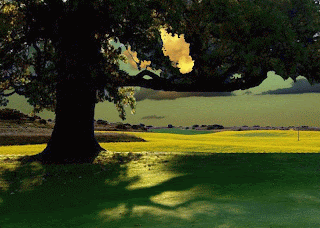The Roman Catholic Church, rooted in the teachings of Jesus Christ and the apostolic tradition, encompasses a rich tapestry of beliefs that form the bedrock of faith for millions around the world. In exploring the core doctrines of Roman Catholicism, one embarks on a journey through a landscape of intricate theological insights, rituals, and moral principles that have evolved over two millennia. This overview aims to illuminate the fundamental beliefs that distinguish Roman Catholicism, inviting reflection and engagement with a faith that offers profound spiritual significance.
At the heart of Roman Catholic doctrine lies the concept of the Trinity. This foundational belief asserts that God exists as three distinct persons: the Father, the Son, and the Holy Spirit, each fully God yet united in essence. This mystery of faith is not merely an abstract theological construct; it informs the Catholic understanding of relationship, love, and community. The Trinity is the divine source from which all grace flows, establishing a profound connection between God and humanity.
The Incarnation is another central tenet that prompts contemplation and reverence. Catholics believe that Jesus Christ, the second person of the Trinity, became fully human while remaining fully divine. This divine condescension represents the ultimate expression of God’s love, emphasizing that God chose to dwell among His creation, experiencing human joys and sufferings. The significance of the Incarnation cannot be overstated; it is through Christ that the fullness of God’s revelation is made manifest.
Salvation, a pivotal aspect of Catholic belief, posits that humanity is in need of redemption due to original sin—a condition inherited from the fall of Adam and Eve. Catholics believe that through Jesus’ death and resurrection, humanity is offered salvation, a divine grace that reconciles believers with God. This grace is imparted through the sacraments, which are seen as outward signs of inward grace. Consequently, Catholics partake in these sacred rituals, such as Baptism and Eucharist, to affirm their faith and deepen their relationship with God.
The Eucharist, or Holy Communion, stands as the pinnacle of Catholic worship. This sacrament, which commemorates the Last Supper, encapsulates the mystery of faith: Catholics believe that during Mass, the bread and wine truly become the body and blood of Christ through the process of transubstantiation. This belief establishes a profound connection between the faithful and Christ, nourishes the soul, and calls believers to partake in a communal act of worship that transcends time and space.
Catholic doctrine also emphasizes the authority of the Church, which is seen as the mystical body of Christ on Earth. The Pope, as the Bishop of Rome, serves as the spiritual leader and a point of unity for Catholics worldwide. The concept of apostolic succession is vital here; it posits that the Pope and bishops inherit their authority through an unbroken line of leaders tracing back to the apostles. This lineage instills a sense of continuity and grounding within the ever-evolving landscape of modern faith, ensuring that the teachings remain linked to the original message of Christ.
Moreover, tradition plays an integral role in Catholic theology. While Scripture is undeniably sacred, it is interpreted through the lens of sacred tradition, which comprises the teachings and practices handed down through generations. This duality enriches the faith, allowing for a dynamic interaction between the written word and the lived experience of faith. Catholicism, thus, thrives on a robust dialogue between past and present, encouraging believers to draw from history while also engaging with contemporary issues.
The moral teachings of the Church are firmly rooted in the dignity of the human person, an affirmation that stems from being created in the image of God. This belief implores Catholics to uphold the sanctity of life, advocate for justice, and promote the common good. The Church’s social doctrine guides the faithful toward action in areas such as poverty, war, and environmental stewardship. Hence, the call to love one’s neighbor transcends mere sentiment, driving the faithful toward tangible acts of charity and justice.
Furthermore, Mary’s role in Catholicism merits significant attention. The veneration of the Virgin Mary encapsulates profound respect and honor, acknowledging her unique cooperation in God’s salvific plan. Mary is seen not merely as the Mother of Jesus, but also as a powerful intercessor for the faithful. Catholic doctrines concerning her Immaculate Conception and Assumption serve as a testament to her elevated status within the faith, inviting believers to seek her intercession in their spiritual journeys.
In the eschatological dimension of Catholic belief, the concepts of heaven, hell, and purgatory present a nuanced understanding of the afterlife. Catholics hold that all individuals will face judgment before God, determining their eternal destiny. Heaven is envisioned as the ultimate state of communion with God, while hell represents eternal separation from Him. Purgatory, a unique aspect of Catholic doctrine, serves as a temporary state for purification, allowing souls to achieve the holiness necessary to enter heaven.
In conclusion, Roman Catholicism presents a profound tapestry of beliefs instructing its adherents in the ways of faith, morality, and communal life. Its doctrines, steeped in tradition yet vibrantly alive, invite exploration and contemplation. The richness of Catholic theology offers not only a framework for understanding God’s revelation but also a compelling call to live out that faith in an interconnected world. By delving into the tenets of Catholic belief, one discovers not just a series of doctrines but an invitation to participate in the divine narrative, embarking on a transformative journey that enriches the soul and fosters a deeper connection with God and humanity.



